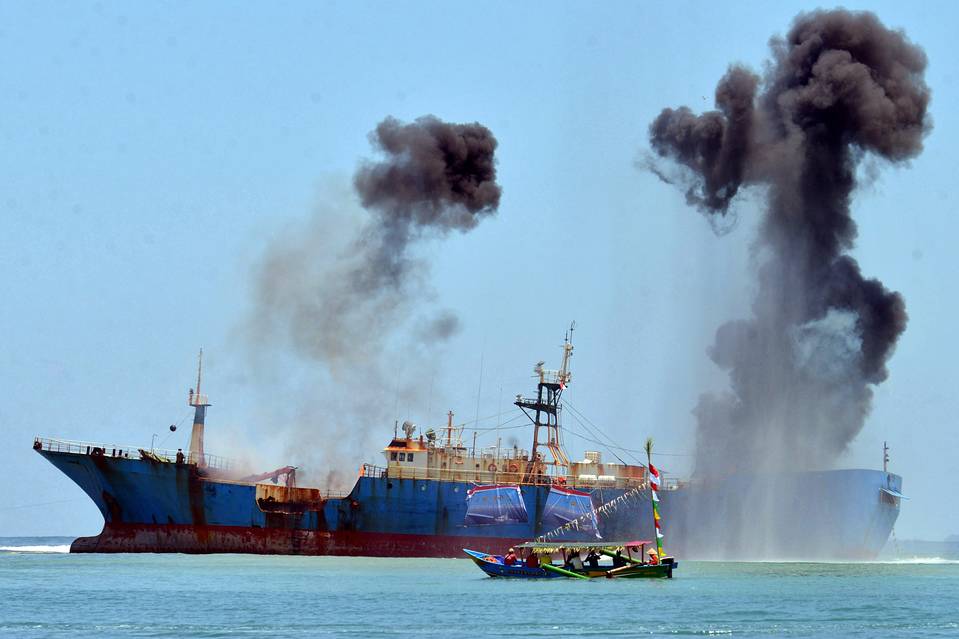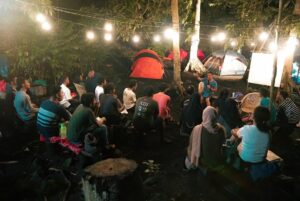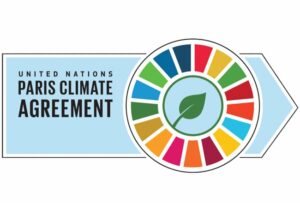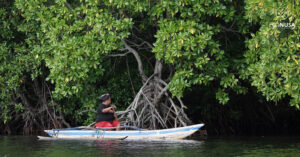
As the largest archipelagic country in the world which is dominated by the ocean, the potential of marine and fisheries in Indonesia cannot be doubted. According to the Indonesian Ministry of Maritime Affairs and Fisheries (KKP), in 2019, the value of Indonesian fishery exports reached IDR 73,631,883,000. making it one of the most prominent industries for national development. Isn’t it incredible?
However, you must also often hear of illegal fishing in Indonesian waters. Throughout 2021 alone, KKP arrested 114 Indonesian fishing vessels that violated the provisions, 53 foreign fishing vessels that stole fish, as well as 96 perpetrators of fishing in destructive ways. This illegal fishing, of course, must continue to be dealt with harshly because it causes a large amount of loss to Indonesia and also threatens the sustainability of our oceans.
So, what is IUU Fishing?
IUU Fishing stands for Illegal, Unreported, and Unregulated (IUU) Fishing. In 2008, the United Nations (UN) designated IUU Fishing as one of the seven maritime crimes in the world along with piracy and armed robbery, terrorism, illicit trade in weapons, narcotics, smuggling and trafficking in persons by sea, and destruction of the marine environment.
In accordance with the abbreviation, there are 3 types of fishing included in this IUU Fishing, namely:
- Illegal Fishing → Fishing activities carried out by foreign personnel or ships in a country’s waters without a permit or in violation of applicable laws and regulations.
- Unreported Fishing → Fishing activities carried out without reporting or not reporting the catch correctly to the authorized agency. Unreported fishing is generally carried out in areas that are under the jurisdiction of Regional Fisheries Management Organizations (RFMOs), in addition to areas that are part of a country’s territory.
- Unregulated Fishing → Fishing operations carried out in an area where conservation and management rules have not been defined, as well as those that do not conform with the provisions stipulated by applicable law
There are 12 types of IUU fishing that are often found in Indonesian waters, according to the Task Force for the Eradication of Illegal Fishing (Satgas 115). The twelve modes are falsification of ship registration documents, double registration and double, catching fish without permits and shipping documents, illegally modifying ships (for example, reducing the size of the ship), using foreign captains and crew, not activating the Vessel Monitoring System (VMS) or Automatic Identification System (AIS), illegal shipment transfer in the middle of the sea, falsification of logbook data (fishing reporting), catching fish outside the fishing area, using prohibited fishing gear, not partnering with the Fish Processing Unit, and not landing fish at the port specified in the permit. Whoa, that’s a lot!
Then the losses from IUU Fishing in Indonesia must be very big, right?
Yup, that’s right! In 2020, the CEO of the Indonesian Justice Initiative, Mas Achmad Santosa, estimated that the losses due to IUU fishing reached USD 15.5 billion to USD 36.4 billion for 11-26 million tons of fish caught. Previously, in 2014 the Ministry of Maritime Affairs and Fisheries noted that state losses due to illegal fishing practices were estimated at 101 trillion rupiah per year.
In addition to causing financial losses, IUU fishing has a negative impact on the long-term sustainability of marine ecosystems. Many coral reefs, for example, have been harmed as a result of explosives fishing. Furthermore, fishing that is not done in accordance with regulations or in protected areas might decrease the diversity of species in our oceans.
You don’t want our marine wealth to continue to dwindle as a result of illegal fishing, do you? That is why, as young people, we must begin to become aware of the possible threats to our oceans. If you ever come across evidence of IUU fishing, report it to the authorities right away! Then, don’t forget to equip yourself with knowledge of other Indonesian maritime issues. You can watch the Sail to Campus talkshows on various issues relating to the Indonesian oceans directly on the EcoNusa YouTube channel.











